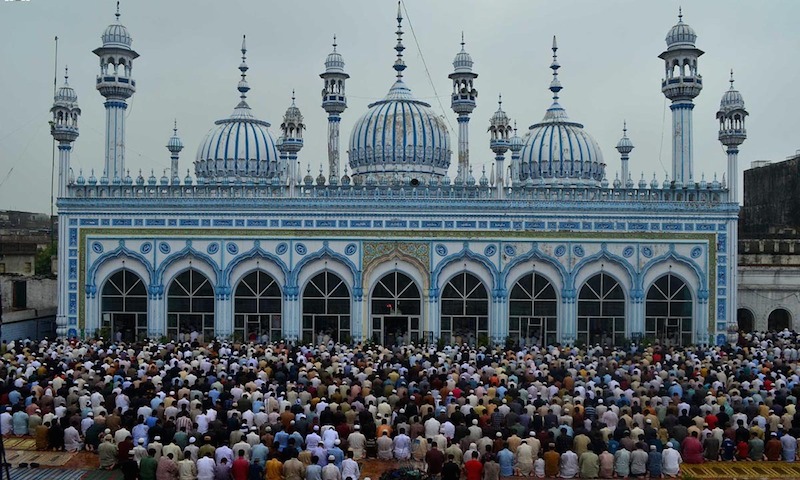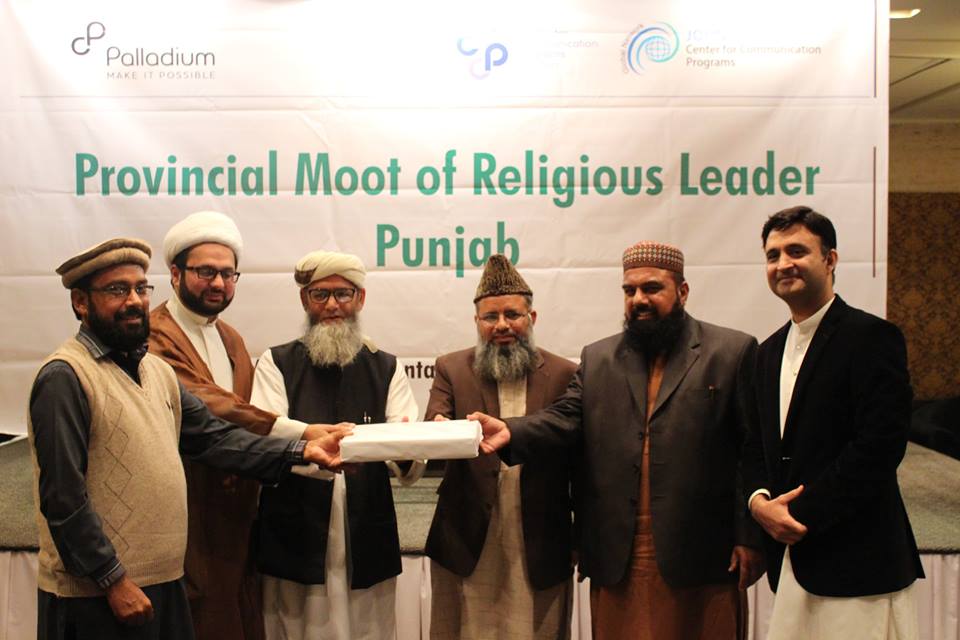
Religious Leaders and Organisations NetworkCenter maintains a vibrant and one of the largest networks of religious leaders from all across Pakistan. There are more than 2,000 religious leaders who have been networked and engaged from time to time to achieve social and behavior change objectives. This nationwide network is a result of nearly eight years of consistent engagement and mobilization. Center pioneered engagement with religious leaders under a nationwide large-scale initiative called ‘Pakistan Initiative for Mothers and Newborns.’ This initiative was implemented from year 2004 to year 2010 and its biggest challenge was to reach to and engage people living in some of the most remotest and challenging areas of Pakistan. A participatory and inclusive engagement was designed to reach to these areas through a network of mosques and seminaries scattered all across Pakistan, in every nook and corner. Religious leaders themselves guided the development and implementation of the strategy and action plans. The engaged religious leaders voluntarily further engage and mobilize their congregants on a range of issues. The Importance of Religious LeadersReligious leaders hold a unique position in the society. They have capacity of instigating social change by guiding citizens’ beliefs and values. They are well placed to influence public opinion through their frequent and effective ways of communication with people at the grassroots level. As prayer leaders, they deliver weekly Friday sermons to particularly attentive congregants. This audience considers it obligatory not only to listen, but also to try and practice what they are preached. Their importance is further heightened in remote areas where people have limited access to other communication sources i.e., print and electronic media. Engagement ActivitiesIn 2013 at the time of general elections, Center revitalized the network of religious leaders to promote right to vote for women and overall greater participation of women in electoral process. Currently, Center is working with religious leaders under Empowerment Voice and Accountability project, which is implemented in nine districts of Khyber Pakhtunkhwa and Punjab provinces; and Health Communication Component in ten districts of Sindh province. Religious leaders are engaged for delivering congregational Friday sermons, after-prayer lectures, and participate in community organizations. Religious leaders have also been engaged for giving religious rulings and creating supportive discourse on media.
The Structure of the NetworkCenter has an apex body of senior national-level religious leaders representing all major sects of Islam. This body works on voluntary basis for providing strategic guidance and support. At the districts level, religious leaders are identified in urban and rural areas based on their following and size of congregations, among other factors. This mapping generates essential details about institutions i.e., mosques and seminaries and specific knowledge needs of religious leaders for supporting a specific social subject. Following a top-down approach, district-level bodies of religious leaders are also constituted for reaching out to religious leaders at grassroots level. Center has been developing reference material to support mobilization efforts of religious leaders. All publications are developed and endorsed by members of the Central Council of Religious Leaders. These resources include but are not limited to, written Friday sermons, handbooks, and posters, among others. Upon the completion of engagement process in districts, religious leaders express their approval and support for specific subject by submitting their individual plan of delivering Friday sermons. Their sermons are vigorously monitored to track the progress and documenting its impact. |


